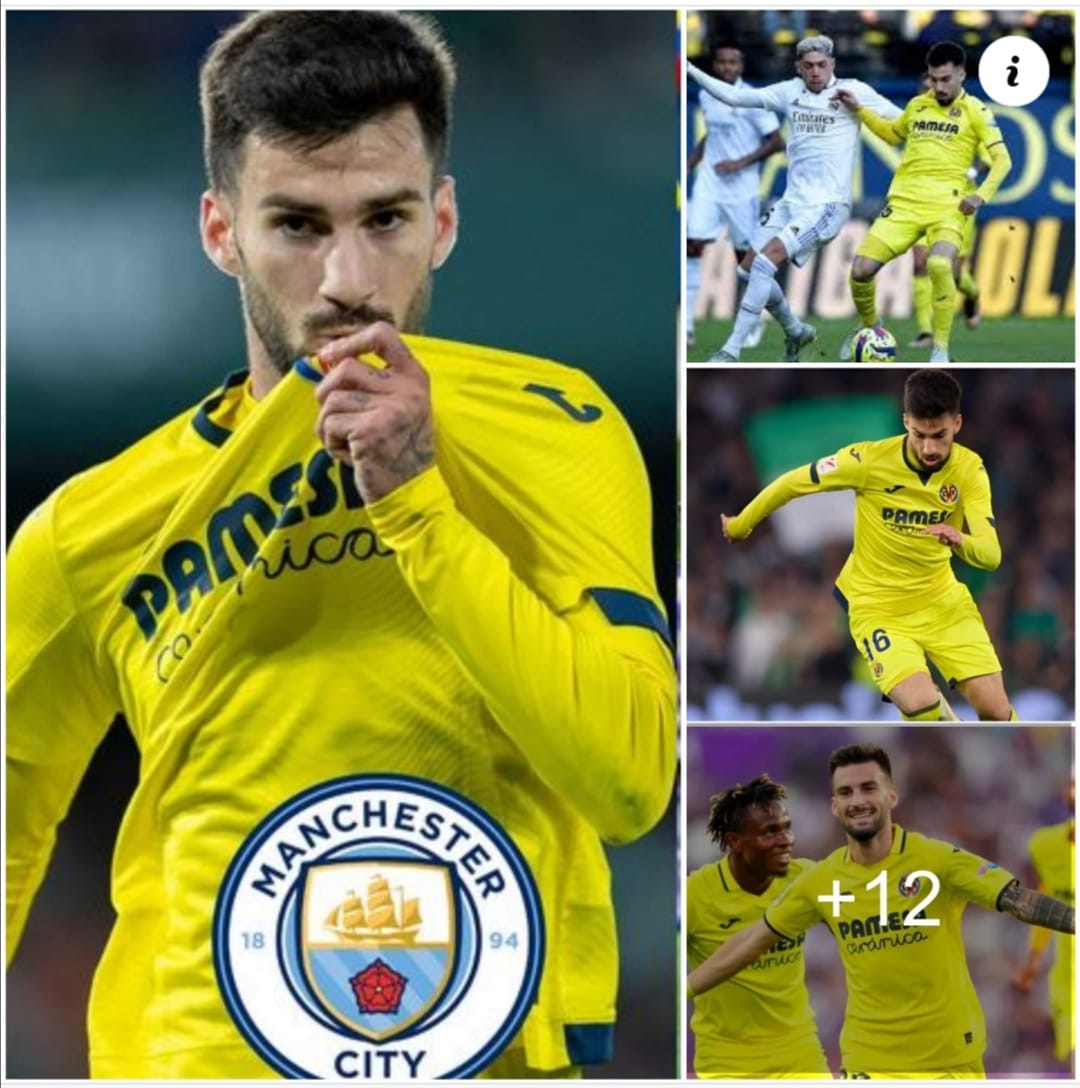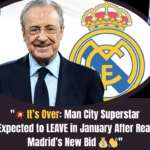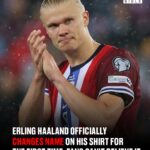Manchester City: The summer transfer window and what they need to do

The summer transfer window arrived with Manchester City having already secured their most significant signing in years. Even before the Premier League title had been mathematically confirmed, the club’s hierarchy had moved decisively to complete what many considered the missing piece of their recruitment puzzle. Erling Haaland’s arrival at the Etihad Stadium represents more than just another high-profile acquisition; it signals the beginning of a new chapter in City’s relentless pursuit of perfection.
The 21-year-old Norwegian striker’s journey to Manchester City reads like a football fairy tale. Growing up as a passionate supporter of the club, thanks to his father Alfie’s playing career at Maine Road in the late 1990s and early 2000s, Haaland’s connection to City runs deeper than mere professional ambition. This emotional bond, combined with his extraordinary talent, creates a perfect storm of circumstances that could define the next decade of Premier League football.
Haaland’s statistics at Borussia Dortmund were nothing short of phenomenal. With 86 goals in 89 appearances across all competitions, the young striker had established himself as one of Europe’s most lethal finishers. His pace, power, and clinical finishing ability perfectly complement Pep Guardiola’s tactical philosophy, offering a direct threat that City had occasionally lacked in recent seasons. The anticipation surrounding his first appearance in sky blue at the Etihad is palpable, with supporters already envisioning the devastation he could wreak alongside the likes of Kevin De Bruyne, Bernardo Silva, and Phil Foden.
The two-year search for Sergio Aguero’s replacement had been meticulous and patient. City’s recruitment team, led by director of football Txiki Begiristain, had identified Haaland as their primary target early in the process. The club’s willingness to activate his release clause demonstrated their commitment to securing the best possible replacement for their legendary Argentine striker. Aguero’s departure left boots that seemed impossible to fill, but Haaland’s arrival suggests that City believe they have found not just a replacement, but potentially an upgrade.
The Alvarez Factor: Hidden Gem or Future Superstar?
While Haaland commands the headlines, Manchester City’s January acquisition of Julian Alvarez represents equally shrewd business. The 22-year-old Argentine forward, secured for a modest £14 million from River Plate, embodies the club’s philosophy of identifying and nurturing exceptional talent before it becomes prohibitively expensive.
Alvarez’s performances in Argentina had been exceptional, but his six-goal haul in a single Copa Libertadores match truly announced his arrival on the global stage. This extraordinary display of finishing ability and composure under pressure provided City fans with a tantalizing glimpse of what their new signing could offer. His versatility as a player who can operate across the front line makes him an ideal fit for Guardiola’s tactical system, where positional fluidity and intelligent movement are paramount.
The decision to allow Alvarez to complete the season with River Plate before joining City for pre-season training demonstrates the club’s long-term thinking. This approach allows the young striker to maintain his development trajectory while ensuring he arrives at the Etihad in peak condition and ready to compete at the highest level. His youth and hunger for success could provide the perfect complement to Haaland’s more established profile, creating a formidable striking partnership for years to come.
Alvarez’s playing style suggests he could thrive in the Premier League. His work rate, pressing intensity, and ability to link play would seamlessly integrate into City’s high-intensity system. Moreover, his experience in South American football, known for its tactical sophistication and competitive nature, should prepare him well for the physical and mental demands of English football.
The Midfield Conundrum: Replacing an Irreplaceable Legend
Fernandinho’s departure represents the end of an era at Manchester City. The Brazilian midfielder’s nine-year tenure at the club coincided with the most successful period in the club’s history, and his influence extended far beyond his on-field contributions. As captain, he embodied the professionalism and winning mentality that Guardiola demanded from his players.
The statistical analysis reveals the true extent of Fernandinho’s importance to City’s success. His role as the team’s midfield anchor, breaking up opposition attacks and distributing the ball with precision, formed the foundation upon which City’s attacking brilliance was built. His leadership qualities, developed over years of experience at the highest level, cannot be easily replaced through a simple transfer transaction.
City’s interest in Kalvin Phillips represents a logical attempt to find a successor who can fulfill similar functions. The England international’s performances for Leeds United and his country have demonstrated his ability to operate effectively in high-pressure situations. His passing range, defensive awareness, and physicality make him an attractive proposition for Guardiola’s system. Phillips’ experience in the Premier League would also eliminate the adaptation period that often affects players moving from foreign leagues.
The potential pursuit of Frenkie de Jong adds another dimension to City’s midfield recruitment strategy. The Barcelona midfielder’s technical ability and vision would offer different qualities to those provided by Phillips. De Jong’s capacity to drive forward with the ball and create chances from deep positions could add a new dynamic to City’s midfield, particularly in matches where opponents deploy ultra-defensive tactics.
The partnership between either Phillips or de Jong alongside Rodri could prove transformative for City’s tactical flexibility. Having two high-quality options in the defensive midfield role would allow Guardiola to rotate his squad more effectively during the demanding Premier League and Champions League campaigns. This depth would also provide insurance against injuries that could otherwise derail City’s season.
Defensive Reinforcement: Learning from Late-Season Struggles
The injury crisis that affected City’s defensive options during the final weeks of the season exposed a vulnerability that the club’s hierarchy is determined to address. Fernandinho’s emergency deployment as both a center-back and right-back highlighted the lack of depth in these crucial positions. While the Brazilian performed admirably in these unfamiliar roles, the situation was far from ideal for a club with City’s ambitions.
The search for a new full-back reflects Guardiola’s understanding that modern football demands exceptional depth in every position. The physical demands of the Premier League, combined with City’s involvement in multiple competitions, means that injuries and suspensions are inevitable. Having quality alternatives in every position ensures that the team’s performance level remains consistent regardless of personnel changes.
Joao Cancelo’s versatility in playing both full-back positions has been invaluable, but relying on one player to provide cover for two positions is risky. The potential departure of Benjamin Mendy, combined with Oleksandr Zinchenko’s occasional struggles in the left-back position, creates a clear need for investment in this area.
Brighton’s Marc Cucurella has emerged as a potential target, and his profile fits perfectly with City’s requirements. The Spanish defender’s attacking instincts and defensive solidity would complement Guardiola’s tactical approach, where full-backs are expected to contribute significantly to both phases of play. His experience in the Premier League would also facilitate a smooth transition to City’s system.
The Rodri Dependency: A Statistical Reality Check
The statistical analysis of Manchester City’s performance with and without Rodri reveals a concerning dependency on the Spanish midfielder. The dramatic drop in win percentage from 77% to 43% in his absence demonstrates his irreplaceable value to the team’s tactical structure. This level of dependence on a single player represents a significant risk that the club must address.
Rodri’s role as City’s midfield metronome cannot be overstated. His ability to dictate the tempo of matches, break up opposition attacks, and distribute the ball with precision forms the backbone of Guardiola’s tactical system. His physical presence and defensive awareness provide the platform for City’s attacking players to express their creativity without defensive concerns.
The Spain international’s impressive statistics – leading the league in recoveries and ranking second in touches and successful passes – illustrate his fundamental importance to City’s success. His positional discipline and tactical intelligence allow the team to maintain their high defensive line while pressing aggressively in the final third.
The losses against Tottenham and Southampton, where Rodri was either unused or unavailable, serve as stark reminders of the team’s vulnerability without him. These results, combined with defeats in cup competitions when he didn’t play, emphasize the urgent need for a capable understudy who can seamlessly step into his role when required.
Strategic Planning: The Guardiola Philosophy
Pep Guardiola’s comments regarding squad planning reveal the sophisticated approach that has made Manchester City so successful. His understanding that squad composition must be constantly evaluated and refreshed demonstrates the forward-thinking that separates elite clubs from their competitors. The recognition that players’ desires for regular playing time must be balanced against the team’s needs for depth shows the complex challenges facing modern football management.
The manager’s collaboration with Txiki Begiristain in identifying transfer targets ensures that all acquisitions align with the club’s tactical philosophy and long-term objectives. This coordinated approach has been instrumental in City’s sustained success and their ability to maintain high standards despite regular personnel changes.
Guardiola’s emphasis on promoting academy players where possible reflects the club’s commitment to developing homegrown talent. This approach not only provides cost-effective squad options but also ensures that young players understand the club’s culture and tactical requirements from an early age. The success of Phil Foden serves as a template for how academy graduates can become integral parts of the first team.
The Competitive Landscape: Staying Ahead of the Pack
Manchester City’s transfer strategy must be viewed within the context of their competitors’ activities. The Premier League’s financial resources mean that rival clubs are constantly seeking to close the gap on City’s dominance. Liverpool’s continued excellence, Chelsea’s ownership change, and Arsenal’s resurgence all represent threats to City’s supremacy that must be countered through smart recruitment.
The club’s ability to secure Haaland ahead of other interested parties demonstrates their pulling power in the transfer market. The combination of Guardiola’s presence, the club’s recent success, and their financial resources creates an attractive proposition for the world’s best players. However, maintaining this advantage requires constant vigilance and strategic planning.
The potential departures of Gabriel Jesus and Raheem Sterling highlight the natural evolution of squad composition. Both players have been instrumental in City’s success, but their desire for regular first-team football may necessitate moves away from the Etihad. Managing these departures while maintaining squad quality requires careful planning and timely replacement recruitment.
Financial Considerations: Balancing Ambition with Sustainability
Manchester City’s transfer strategy must navigate the complex landscape of Financial Fair Play regulations while maintaining their competitive edge. The club’s significant investment in infrastructure, academy development, and player recruitment demonstrates their commitment to long-term success rather than short-term gains.
The relatively modest fee paid for Julian Alvarez exemplifies the club’s ability to identify value in the transfer market. This type of acquisition, combining exceptional talent with reasonable cost, allows City to invest heavily in marquee signings like Haaland while maintaining financial balance.
The club’s focus on player development and tactical improvement under Guardiola has increased the value of their existing squad members. Players like Bernardo Silva, Phil Foden, and Joao Cancelo have all significantly increased in value during their time at City, creating both sporting and financial benefits for the club.
Looking Forward: The Next Phase of City’s Evolution
The upcoming season represents a crucial period in Manchester City’s development. The integration of Haaland and Alvarez into the squad, combined with potential new signings in midfield and defense, could create the most formidable team in the club’s history. The challenge will be maintaining the tactical flexibility and squad harmony that has been crucial to their recent success.
Guardiola’s ability to adapt his tactical approach to accommodate new players while maintaining his core principles will be tested. The manager’s track record of successfully integrating world-class talent suggests that both Haaland and Alvarez will quickly adapt to his demanding system.
The depth of quality throughout the squad positions Manchester City as early favorites for multiple trophies. The combination of experienced leaders like Kevin De Bruyne and emerging talents like Phil Foden creates a perfect blend of maturity and youthful exuberance.
Conclusion: The Pursuit of Perfection Continues
Manchester City’s transfer strategy reflects their unwavering commitment to excellence and continuous improvement. The acquisition of Erling Haaland represents a statement of intent that resonates throughout world football. Combined with the potential arrival of Julian Alvarez and targeted reinforcements in midfield and defense, City are assembling a squad capable of dominating both domestically and internationally.
The club’s success in recent years has been built on meticulous planning, tactical innovation, and the ability to identify and develop exceptional talent. This approach continues to guide their recruitment strategy, ensuring that each new signing contributes to the collective ambition of achieving sustained success at the highest level.
As Manchester City prepares for another campaign, their competitors can only watch with a mixture of admiration and concern. The club’s ability to continuously evolve while maintaining their core identity suggests that their period of dominance is far from over. The arrival of Haaland and the potential addition of other world-class talents indicates that the best may be yet to come for this remarkable football club.















